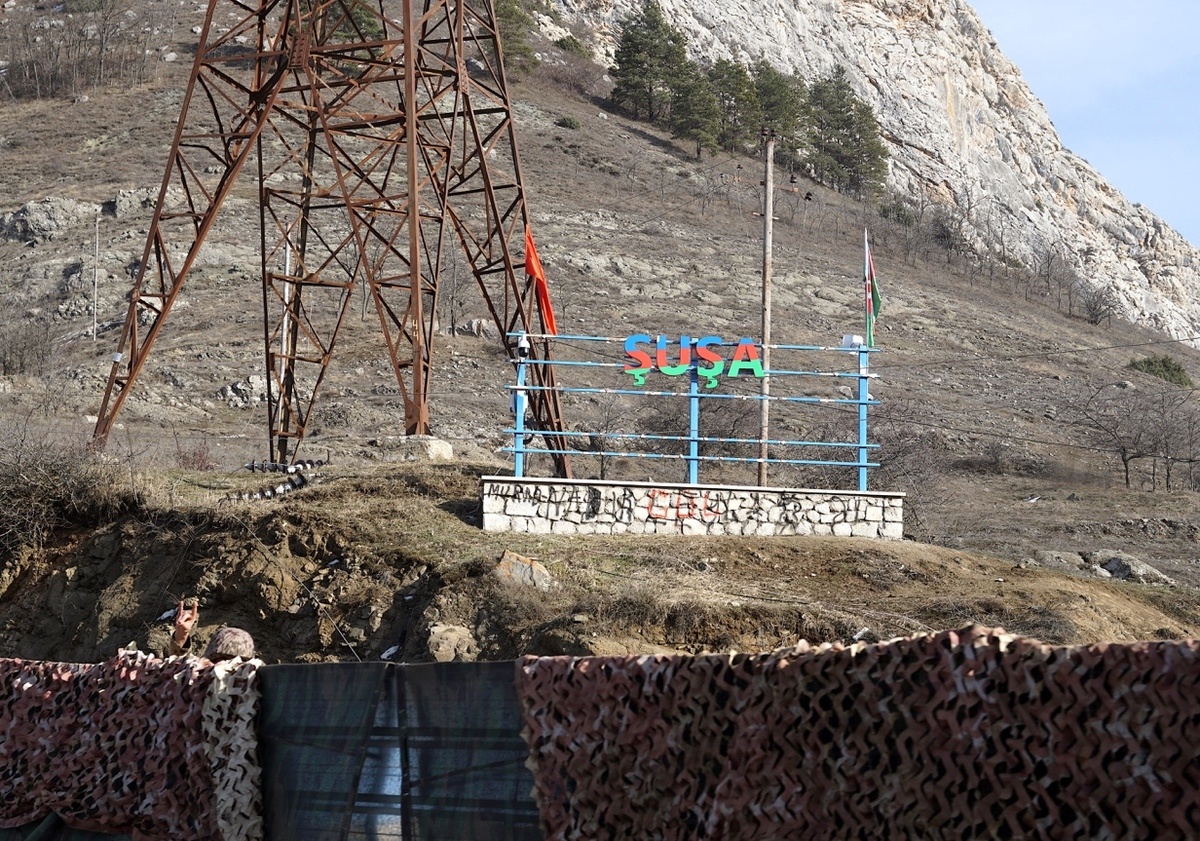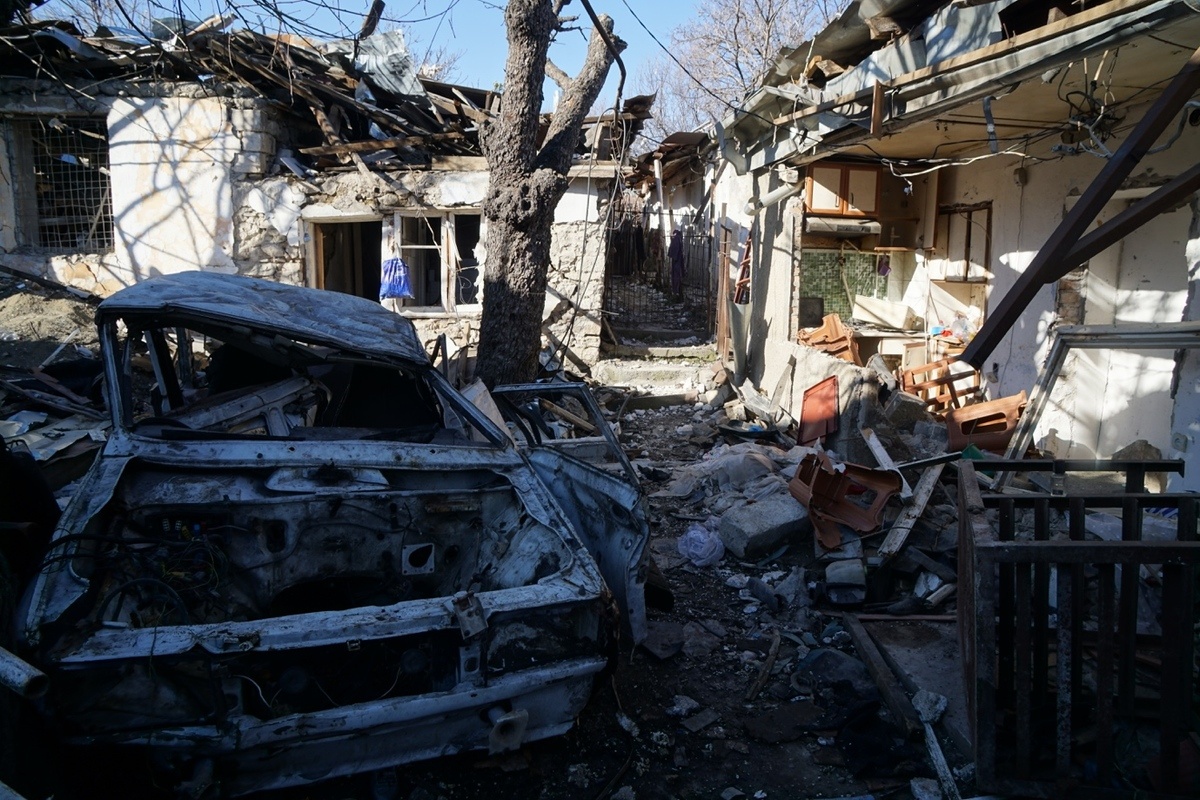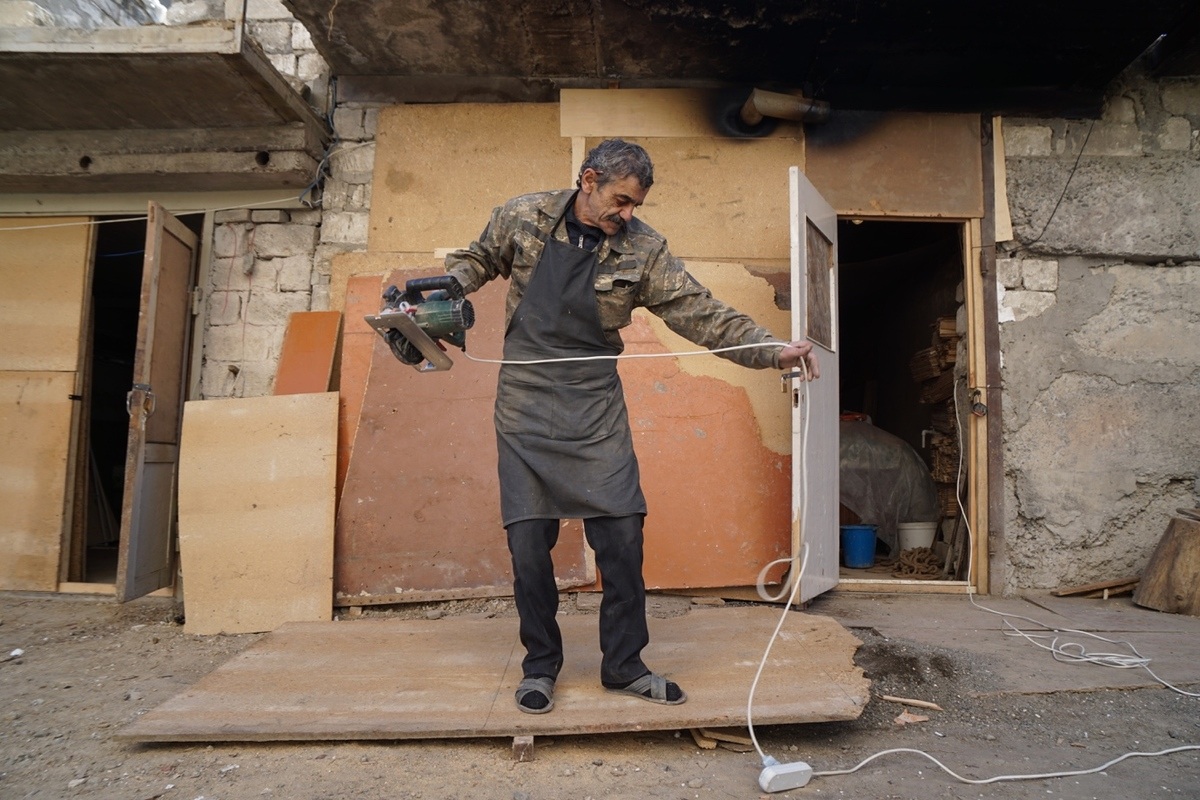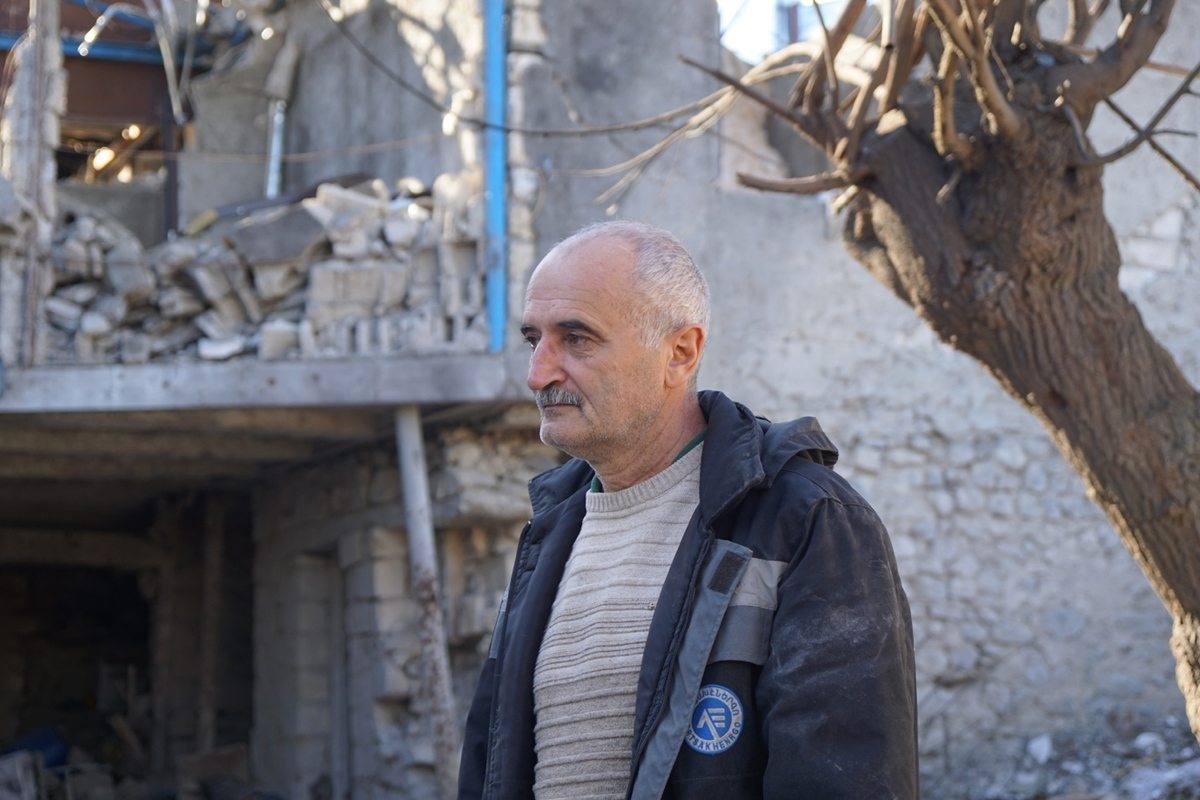As Armenia ends its annual two-week holiday period, the mood in the country is sombre. The former Soviet state is continuing to reckon with its losses from the six-week war it waged last year with Azerbaijan over Nagorno-Karabakh.
The Nagorno-Karabakh region, or Artsakh to Armenians, lies within Azerbaijan’s international border. However, up until last year, when Azerbaijan took control of most of the region by force, Nagorno-Karabakh had been ruled by an ethnic Armenian government.
Last year’s fighting was the most recent outbreak of violence in a conflict that has simmered for decades between Armenia and neighbouring Azerbaijan. The six weeks of fighting between the two countries largely ended in November 2020 with a peace deal brokered by Moscow that resulted in 2,000 Russian troops being deployed to the region as peacekeepers.
Azerbaijan, equipped with sophisticated arms and drones from Turkey, succeeded in taking control of the majority of Nagorno-Karabakh. In total, almost 6,000 people died in the conflict, with thousands of ethnic Armenians displaced from their homes.
The Aftermath
On the road from the Armenian border to Stepanakert, the de facto capital of Karabakh, signs of the war that had been waged only two months before remain. There are bombed-out cars, a bridge with a crater where a bomb fell and several road checks manned by young Russian troops quizzing drivers on their plans.

As you drive into Stepanakert a sign for the historic town of Shusha has been conspicuously installed on a hill on the Azeri side of the border. The letters of Shusha are displayed in the bright blue, green and red of Azerbaijan’s national flag. The sign seems designed to taunt the Armenians who previously controlled the town before it was seized by Azerbaijan during the fighting.
The military cemetery on the outskirts of the city has a new section for the mostly young soldiers who died in the conflict. The youngest who died in the fighting were eighteen, with 2002-2020 engraved on their tombstones.

By the main government building in Stepanakert is a mural for of the Armenian soldiers who are still being held by Azerbaijan as prisoners of war. On top of faces of the soldiers, the mural says: “Russia help us bring back our soldiers”.
The city’s hospital, police station and food market, as well as many homes, were damaged in airstrikes from Azerbaijan.

Sarskin Samrel (60) recounts how on the 6th October at 10 pm, his house on Martuni Street, one of the oldest streets in Stepanakert, was destroyed by heavy shelling from Azeri forces.
The house had been built in 1889 by Sarskin’s great grandfather. Nine generations had lived in the house and a new extension had just been built for Sarskin’s son before the war broke out in September.
When I spoke with the family, they were clearing out what remained of the contents of their home. The badly damaged house is to be demolished and a new one erected in its place.
On the other side of Stepanakert, Yura Verdyan (63) was cutting plywood to cover up the broken windows in the apartment building his family lives in. This is Yura’s second time repairing the building which was also badly damaged during the first Nagorno-Karabakh war.

Russia’s diplomatic coup
Among locals, there are varying views of Russia and its involvement in the region.
Some are happy and speak of Armenia as “Russia’s little brother”; they have even suggested that Nagorno-Karabakh might become part of Russia in the future. Others are indifferent: whether the peacekeepers came from Russia, Europe or America, it didn’t matter, so long as the fighting stopped.
Sevana (30), a musician who ran workshops for children during the fighting, fears that Nagorno-Karabakh will lose its Armenian heritage and become a colony of Russia, if the Russian troops remain long term.
Samrel, whose house was destroyed by Azeri shelling is pragmatic: “it’s neither good nor bad that Russia is here, but Russia is here for Russia, not for us.”

Russian success
And Russia is widely seen as a winner in the conflict. The former Soviet power has established a military presence in Azerbaijan, increased its control of the Southern Caucasus and prevented Turkey, who backed Azerbaijan in the conflict, from gaining a foothold in the area.
Edmon Marukian, the leader of the Bright Armenian opposition party in Armenia’s parliament, has even suggested that Russia should establish a second military base in Armenia. Such a move would represent a shift in foreign policy for Armenia, which had been seen as more closely aligned with the West than Russia in recent years.
Last Monday in Moscow, President Putin continued in his new role as peacemaker by hosting peace talks between Armenian Prime Minister, Nikol Pashinyan, and President of Azerbaijan, Ilham Aliyev.
The talks were frosty and highlighted the many unresolved issues that remain between the two former Soviet states including the return of refugees and prisoners of war, humanitarian issues, the preservation of cultural sites, and the final border of Nagorno-Karabakh.
Anna Ohanyan, a scholar at the Carnegie Centre has highlighted concerns that President Aliyev lacks a strong incentive to agree to a lasting peace deal with Armenia. The conflict has allowed Aliyev to further consolidate his power within Azerbaijan, while the country’s military success provided a convenient distraction to other domestic problems.
Human rights NGO, Amnesty International, has also documented war crimes committed by both Armenian and Azeri forces during the conflict. Amnesty International’s Research Director for Eastern Europe and Central Asia, Denis Krivosheev has said that “during the recent Nagorno-Karabakh fighting, members of the military on both sides have behaved horrendously, displaying a complete disregard for the rules of war.”
So far, these abuses remain largely unaddressed, although Azerbaijan has charged some of its soldiers with desecration of dead bodies and vandalism.
Until these issues are resolved and a genuine agreement is negotiated in good faith between Azerbaijan and Armenia, the peace between the two neighbouring countries will remain fragile for the foreseeable future.
PrintHannah McCarthy | Radio Free (2021-01-18T07:50:11+00:00) Peace in Nagorno-Karabakh Remains Fragile, With Key Issues Unresolved. Retrieved from https://www.radiofree.org/2021/01/18/peace-in-nagorno-karabakh-remains-fragile-with-key-issues-unresolved/
Please log in to upload a file.
There are no updates yet.
Click the Upload button above to add an update.
